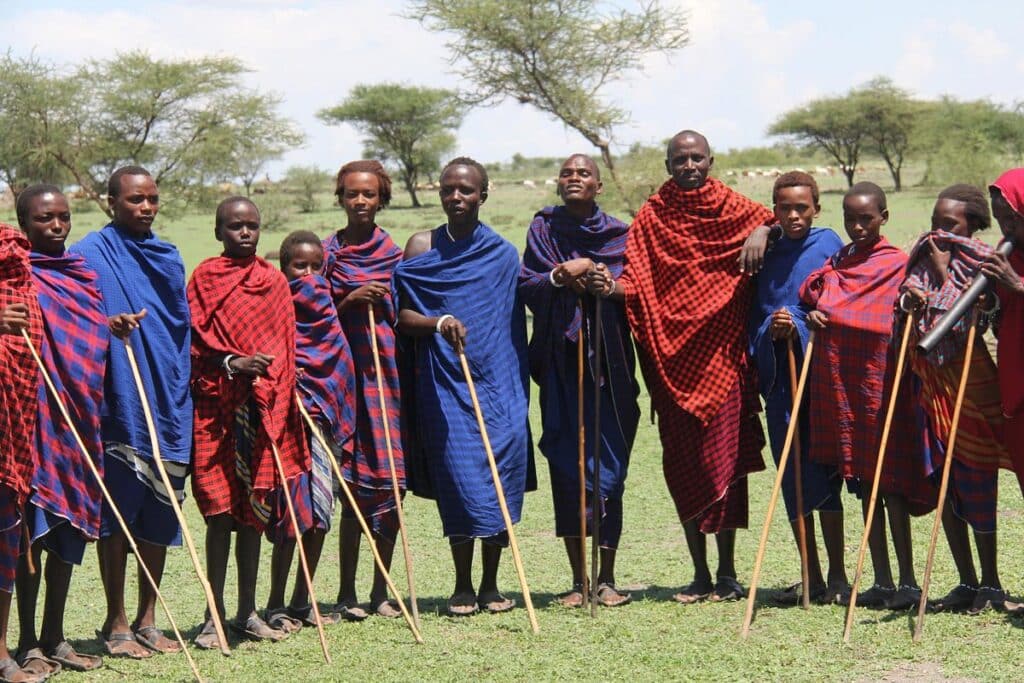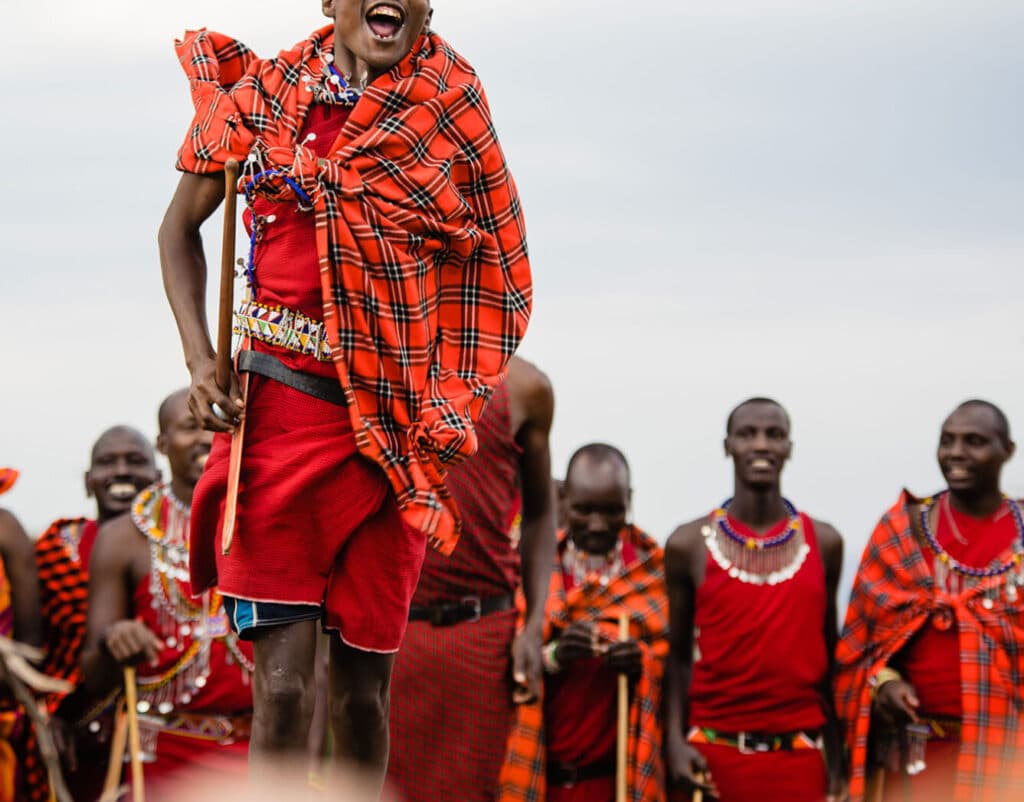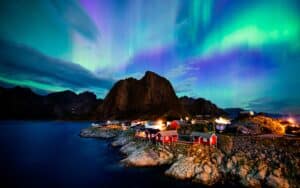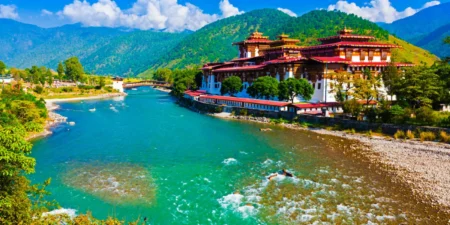Emerging from the heart of East Africa, the Maasai people stand as a testament to resilience, cultural vibrancy, and an unwavering connection to the natural world. Renowned for their distinctive red shukas, warrior traditions, and harmonious coexistence with wildlife, the Maasai have captivated the world with their unique customs and unwavering spirit.

A Legacy of Pastoralism
The Maasai are a semi-nomadic pastoralist community, primarily inhabiting Kenya and Tanzania. Their lives revolve around cattle, which they consider sacred and a symbol of wealth and status. Cattle provide sustenance, blood for nourishment, and hides for clothing and shelter. The Maasai’s deep understanding of animal behavior and their ability to thrive in the harsh savannah environment have become hallmarks of their identity.
Warrior Culture and Rites of Passage
The Maasai warrior culture is a defining aspect of their society. Young men undergo rigorous training, transforming into Moran, the warrior age group tasked with protecting the community and their livestock. Their distinctive attire, including the iconic beaded belts and ostrich-feather headdresses, symbolizes their courage, strength, and readiness to defend their way of life.

Women: The Backbone of Maasai Society
While the warrior culture takes center stage, Maasai women play a crucial role in maintaining the community’s social fabric. They are responsible for household chores, raising children, and maintaining the Boma, the traditional Maasai circular enclosure. Their intricate beadwork, adornments, and traditional songs add to the richness of Maasai cultural expression.

A Harmony with Nature
The Maasai’s connection to nature is deeply ingrained in their beliefs and practices. They consider themselves part of the natural world, living in harmony with wildlife and respecting the delicate balance of the ecosystem. Their traditional knowledge of medicinal plants and their understanding of animal migration patterns underscore their deep connection to the environment.
Preserving Traditions in a Changing World
Despite the challenges of modernization and globalization, the Maasai are committed to preserving their cultural heritage. They have established community-based conservancies, combining traditional land management practices with conservation efforts. These initiatives aim to protect their sacred lands, preserve their unique way of life, and educate future generations about the importance of cultural preservation.

A Cultural Tapestry Woven Through Time
The Maasai culture is a tapestry woven through time, a testament to the enduring spirit of a people who have adapted and thrived amidst changing landscapes. Their rich traditions, deep connection to nature, and unwavering resilience serve as a reminder of the importance of cultural heritage and the profound impact it has on shaping human identity. As the Maasai continue to navigate the modern world, their unwavering commitment to preserving their unique customs ensures that their legacy will continue to inspire and captivate generations to come.






